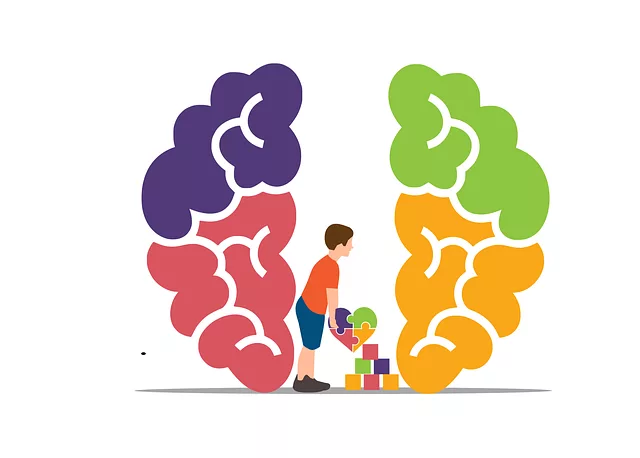Substance abuse is a complex issue with severe consequences for individuals' lives. Early recognition of behavioral changes and seeking support from resources like Kaiser Broomfield's comprehensive mental health services are crucial steps in prevention and treatment. Evidence-based strategies, open communication, and creating supportive environments at home and work can reduce risks. Utilizing Kaiser Broomfield's tailored services, including counseling, CBT, and holistic approaches, promotes recovery, improved mental health, and lasting positive outcomes. Accessing their resources, such as learning "how to get mental health services through Kaiser Broomfield," empowers individuals and organizations to mitigate substance abuse effectively.
Substance abuse poses significant risks to individuals and communities. Understanding these dangers and recognizing early signs is crucial for implementing effective risk reduction strategies. This article guides you through a comprehensive approach, from identifying potential issues to accessing vital mental health services through Kaiser Broomfield. We explore evidence-based strategies for risk minimization and highlight the importance of creating supportive environments at home and work. Learn how to navigate resources like Kaiser Broomfield to promote well-being and prevent substance abuse.
- Understanding Substance Abuse and Its Risks
- Recognizing the Signs: Identifying Potential Issues
- Accessing Mental Health Services through Kaiser Broomfield
- Evidence-Based Strategies for Risk Reduction
- Creating a Supportive Environment at Home and Work
Understanding Substance Abuse and Its Risks

Substance abuse is a complex issue that significantly impacts individuals’ lives and well-being. It refers to excessive or uncontrolled use of drugs, alcohol, or other substances, leading to negative consequences for health, relationships, and overall functioning. Understanding the risks associated with substance abuse is paramount in developing effective prevention and treatment strategies. This includes recognizing the potential for dependency, addiction, and long-term health issues such as organ damage, mental health disorders, and cognitive impairments.
The relationship between mental health and substance abuse is bidirectional. Many individuals turn to substances as a form of self-medication to cope with underlying mental health conditions like depression, anxiety, or trauma. This can worsen their emotional well-being in the long run. Promoting mental health awareness and providing accessible resources, such as those available through Kaiser Broomfield for mental health services, are crucial steps in risk reduction. Communication strategies that encourage open dialogue about substance abuse and its effects can help individuals seek support early on, preventing more severe outcomes.
Recognizing the Signs: Identifying Potential Issues

Recognizing the signs of substance abuse is a crucial first step in seeking help. Many individuals struggle with addiction silently, so being able to identify potential issues is essential for timely intervention. Behavioral changes, such as increased secrecy, irritability, or drastic shifts in mood, can be red flags. Additionally, physical symptoms like fatigue, weight fluctuations, and poor hygiene may indicate an underlying problem. It’s important to remember that these signs vary from person to person, and understanding them is key to supporting loved ones or colleagues who might be at risk.
For those seeking support through mental health services, Kaiser Broomfield offers comprehensive care. They provide resources for emotional healing processes, which often include counseling, therapy, and group support programs tailored to individual needs. Furthermore, their expertise in mental health policy analysis and advocacy ensures that patients have access to the latest evidence-based treatments. Risk assessment is also a vital component of their service, helping to identify and mitigate potential dangers for those at high risk, including mental health professionals themselves.
Accessing Mental Health Services through Kaiser Broomfield

Accessing mental health services through Kaiser Broomfield is a significant step in mitigating risks associated with substance abuse. Kaiser Permanente Broomfield offers a comprehensive array of psychological and counseling services designed to address underlying mental health conditions that often co-occur with addiction. Their professional team includes licensed therapists, psychologists, and psychiatrists who specialize in dual diagnosis treatment, providing an integrated approach to care. This ensures that individuals struggling with substance abuse receive holistic support tailored to their unique needs.
By taking advantage of these services, individuals can learn coping strategies for managing stress, anxiety, or depression—common triggers for substance misuse. Moreover, Kaiser Broomfield often organizes public awareness campaigns and workshops focused on burnout prevention strategies for healthcare providers and self-care routine development for better mental health. These initiatives contribute to a supportive environment, fostering understanding and encouraging proactive measures to maintain well-being.
Evidence-Based Strategies for Risk Reduction

Evidence-based strategies play a pivotal role in mitigating risks associated with substance abuse. These approaches, backed by rigorous research and proven effective, offer individuals a structured path to recovery and improved mental health. One such strategy is cognitive-behavioral therapy (CBT), which focuses on identifying and changing negative thought patterns and behaviors contributing to substance misuse. CBT equips individuals with coping mechanisms, enhances emotional healing processes, and promotes healthier decision-making, ultimately reducing the risk of relapse.
Additionally, integrating mental health awareness and stress reduction methods into treatment plans has proven beneficial. Techniques like mindfulness meditation, yoga, and group therapy sessions foster self-awareness, emotional regulation, and social support—crucial elements in navigating the complexities of substance abuse recovery. By accessing resources such as those offered by Kaiser Broomfield for mental health services, individuals can receive comprehensive care tailored to their unique needs, thereby further minimizing risks and promoting lasting positive outcomes.
Creating a Supportive Environment at Home and Work

Creating a supportive environment at both home and work is vital for mitigating risks associated with substance abuse. This involves fostering open communication about mental health, reducing the stigma that often surrounds mental illness, and ensuring access to resources like how to get mental health services through Kaiser Broomfield. At home, this could mean encouraging family members to discuss feelings openly, creating safe spaces for vulnerable individuals, and promoting a culture of understanding and empathy.
In the workplace, implementing policies that support employee mental well-being is crucial. This includes providing resources for stress management, offering flexible work arrangements, and integrating mental health policy analysis and advocacy into company culture. Such initiatives can boost confidence among employees, helping them feel more comfortable seeking help when needed. By fostering a supportive environment, individuals are better equipped to manage stress, seek appropriate mental health services, and reduce the risks of substance abuse.
Substance abuse poses significant risks, but with the right strategies, these can be mitigated. Understanding the issue and its signs is the first step, followed by accessing evidence-based treatments like those offered by Kaiser Broomfield for mental health services. Creating supportive environments at home and work further enhances recovery. By combining education, access to quality care, and a nurturing atmosphere, individuals can effectively manage and reduce the risks associated with substance abuse. Remember, seeking help is a crucial step towards a healthier, safer future.






